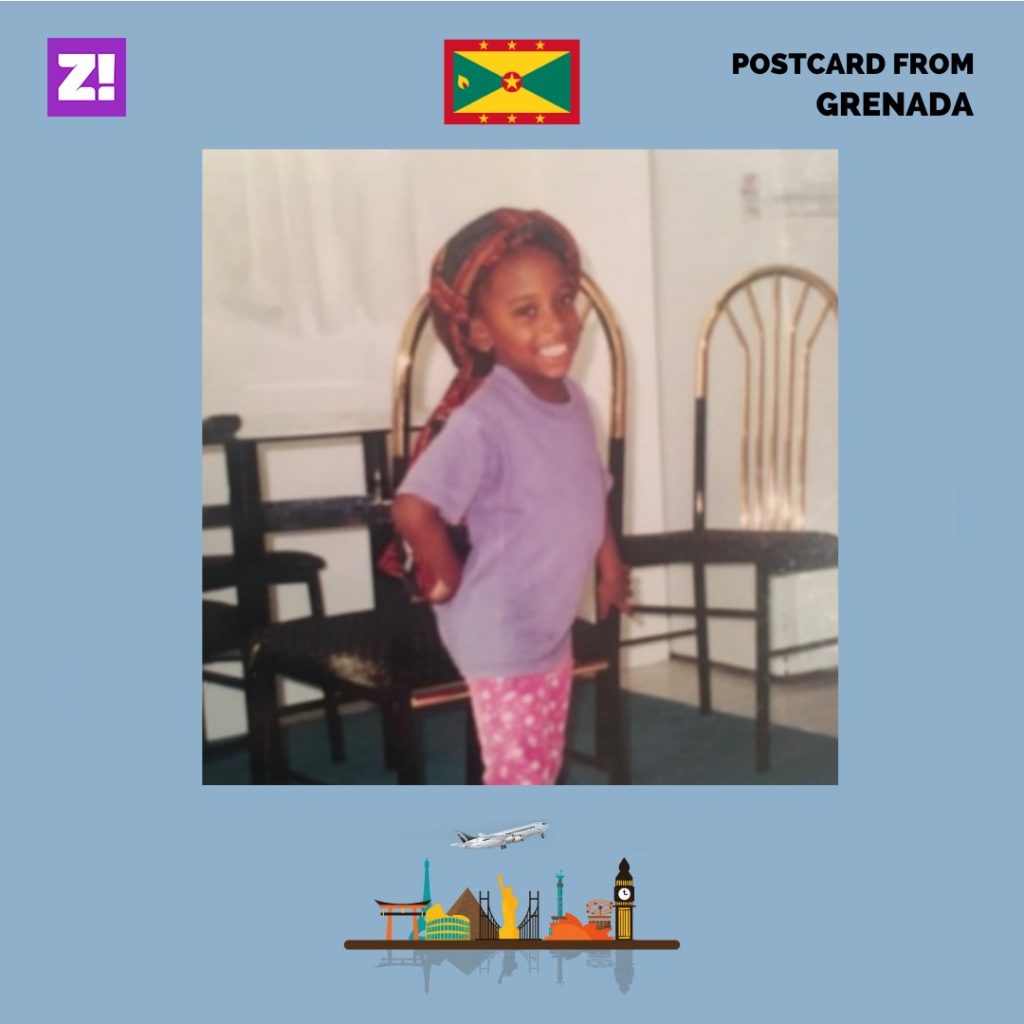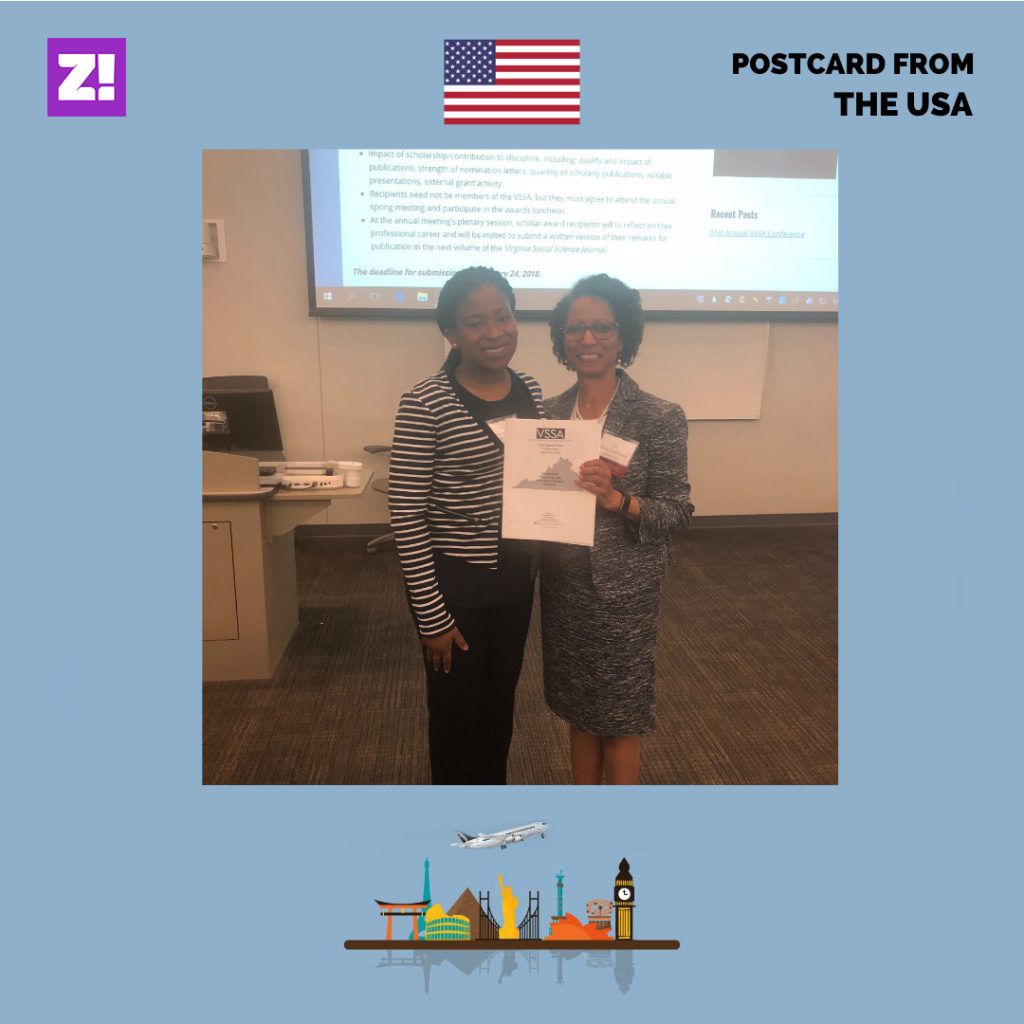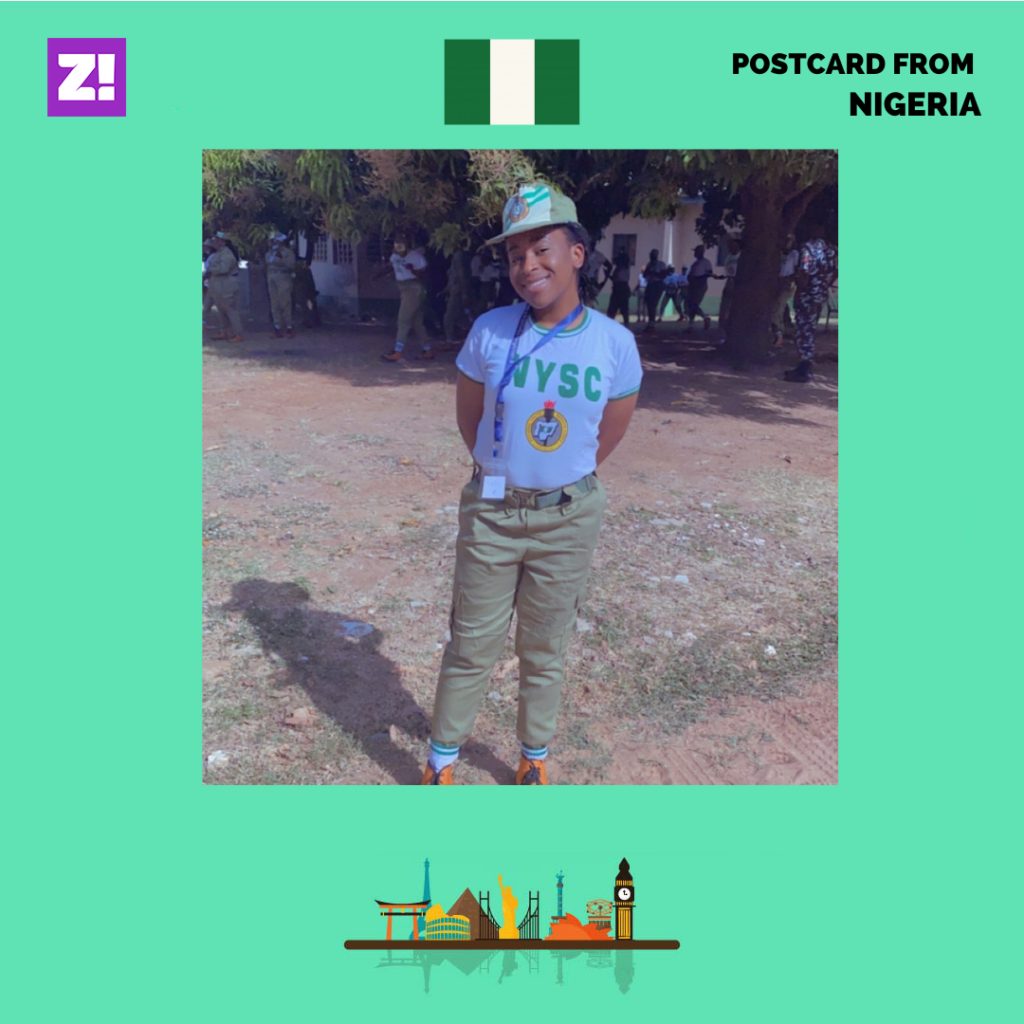The Nigerian experience is physical, emotional, and sometimes international. No one knows it better than our features on #TheAbroadLife, a series where we detail and explore Nigerian experiences while living abroad.
Today’s subject on Abroad Life was born in Grenada and then moved to the USA when she was five years old. She talks about what it’s like living with triple citizenship and why she has decided to live in Nigeria and do NYSC.
So where were you born?
I was born in St George’s, Grenada, which is in the Caribbean. My parents moved from Nigeria to Grenada in 1997 after they finished studying medicine at the University of Nigeria, Nsukka. I have three sisters and one half brother. I’m the first born and I was the only one that was born in the Caribbean. The rest were born in the US.

How long were you in the Carribean for?
I stayed in the Caribbean for five years. We shuffled between Grenada and Trinidad because my parents were teaching in one of the medical schools in Trinidad. My mum would go to the US to have my younger siblings and then come back to Grenada, but we finally moved to America in 2003 after my mom gave birth to the third child.
So my dad, my younger sister joined her and the baby in Minnesota. We stayed for a few months, then moved to Pennsylvania for a couple of years then moved to New Jersey for six years and after that, we’ve been in Virginia.
Do you know why you fully moved to the US?
The US was always the plan. They moved to the Carribean first just to get out of Nigeria. I’m not sure about the specific countries, but many countries in the Carribean were and are still visa free for Nigerians. So while they were stacking up for the US, they moved to Grenada. It was also a great place for them to do their residency and medical training. I like to call it an interlude.
Do you have any memories from Grenada?
We have a lot of photo albums. I remember that it was always very fun. My parents’ family and friends stayed with us both in Grenada and Trinidad, so I had a lot of love around me. Being surrounded by family was beautiful. My sister and I were always together and with our parents. I value those moments because they were the most serene moments of our lives.

Then you started moving around. . .
Yes. That’s because of my parents’ profession. For residency and fellowship, you have to apply to different places. Apparently, to become a top doctor you have to work in different places.
We weren’t always with our parents, but we had to make sacrifices so they could get the career they wanted.
Did it affect you in any way?
Well, because we had to move a lot, I was always the new girl starting over. I got bullied. My name isn’t easy to pronounce except you knew the Nigerian pronunciation, so students and teachers were deliberately and mistakenly butchering my name. I became very shy and started keeping to myself because I didn’t want any trouble.
There’s only so much you can tell your African parents, and there’s only so much they can do for you. Many times, they’d tell me to get over it. It’s not like they didn’t care. It was just what it was. I had to learn to survive and adapt.
Sorry you had to go through all of that. Did any of this affect your relationship with your parents?
I’ve lived with my mom longer than I’ve lived with my dad, but I wouldn’t say I’m closer to her because of that. Maybe the thing that makes us closer is that we’re both women. I have a pretty balanced relationship with my parents.
That’s nice. So how did citizenship happen?
I got it through my mum. If you are below 18 and your parents get citizenship, you are automatically a citizen. My mother went for the test and got it when I was 17. If I was already 18, I would have had to go through the same process she went through. I’m glad I didn’t have to.
Have you been back to Grenada since you left?
No. I’ve been coming to Nigeria though.
How often?
The first time I visited was in 1998. But I’ve visited Nigeria every year since 2015. In 2019, I came three times, and now I’m here for NYSC.
Personal choice or…?
Yes. I don’t think I had any expectations of Nigeria, but as I started to learn about the mannerisms of Nigerians, the danger and the history of the country, I started to feel more connected. Most people like me who have the option of leaving Nigeria would leave permanently, but I kept coming back, and I think it’s because I wanted to stay close to my roots. I’m not Caribbean by blood, it’s just by nationality. I want to be more in tune with Nigeria despite how it has been and how it is right now.
Those visits to Nigeria have made me more appreciative of what Nigeria stands for.
Did your visits change anything about you?
First things first, I’ve definitely become more street smart. I’ve also learnt so much more about my family. Since I started coming back, I’ve been trying to incorporate Nigeria into my education. I did a couple of projects in the University of Virginia just to learn more about the people and appreciate what I have in the US. Right now, I’m doing NYSC even though I don’t have to, just so I can at least relate with a holistic Nigerian experience.

Or you want to run for president. . .
Haha. . . not necessarily. I just want to experience Nigeria like a Nigerian. My dad wanted me to do NYSC, but he never persuaded or forced me. I finished my masters in September and decided I would do NYSC and figure out where next I want to go in life.

Has that become clearer?
I feel like things are evolving, but I may want to stay here after service as an opportunity to learn more about Nigeria with a business and humanitarian mindset.
That’s great. Let’s divert a bit and talk about NYSC camp.
Haha… In a nutshell, it was a rewarding experience. It taught me discipline, humility and I saw things in more “Nigerian ways” than I’d ever seen.
But I won’t lie. It was super stressful. The strict soldiers, staying in the sun for hours, waking up and going to bed early and barely having any time for yourself, getting in trouble with the police for not obeying social distancing, kneeling down for the smallest things, and basically complying with all these rules, ah! I’m not used to any of that, but I learnt to live outside my comfort zone. That’s one of the reasons I’m here anyways.
You got in trouble with the police in camp?
Yes. That day, I had given someone my AirPods and wanted to get it back. I went to meet him in the kitchen (he was on kitchen duty) to collect it. I just wanted to collect my thing and go, but he held on to it and we started gisting. There was no chair, so I sat on his knee and in like two seconds, everyone started acting really weird like they’d seen a ghost. The head of police on camp appeared out of nowhere and whisked us away to his station.
When we got there, he started trying to scare us with camp court and punishments, talking about how we were breaking COVID-19 protocols. He even asked us what punishments we would like, and I was like “Sir, please let us run laps around the field.”
Then one of my roommates came to beg for us, saying stuff like, “Sir, she’s oyinbo; she doesn’t know all these things. Just leave her.”
After some time, he let us go and made us promise never to do anything like that again.
Considering the fact that some people got into camp court for hugging, I consider myself lucky.

LMAO. After all this time in Nigeria, what’s one thing you can’t wrap your head around?
The tribalism. One tribe is always tagging the other as the problem. There’s just always division. We call ourselves Nigerians but I don’t understand why we are always against each other.
When Nigeria turned 60, the president gave a speech that encouraged peace and unity. Then EndSARS happened, and it took him a long time to respond. How can you say there should be peace when even you can’t be a peace agent? There’s just so much division.
I feel you. What nationality do you identify with?
I either call myself a Nigerian or a Nigerian-Grenadian. I don’t call myself American unless I’m supposed to, like maybe on a school application or when I’m in America. I don’t call myself just Caribbean because I’m not Caribbean by blood, so it’s either Nigerian or Nigerian-Grenadian.
You must be hot cake in the “marriage market”.
I’m probably staying in Nigeria for a while, but entries are not open for people who want to marry and japa. Many people will leave you once they get the visa.
Is this a fear you constantly have?
No, because I’m very careful with the people I surround myself with. That said, I wouldn’t oppose marrying someone that was born and raised in Nigeria, but it goes way beyond that and unto character, ambition and future goals. I take everything into detail when considering a friendship or romantic relationship. People in my shoes need to set boundaries early on. You have to be careful because some people disguise themselves as genuine, and then you later find out that you were played. You just have to be careful.
I feel you.
Want more Abroad Life? Check in every Friday at 9 A.M. (WAT) for a new episode. Until then, read every story of the series here.




